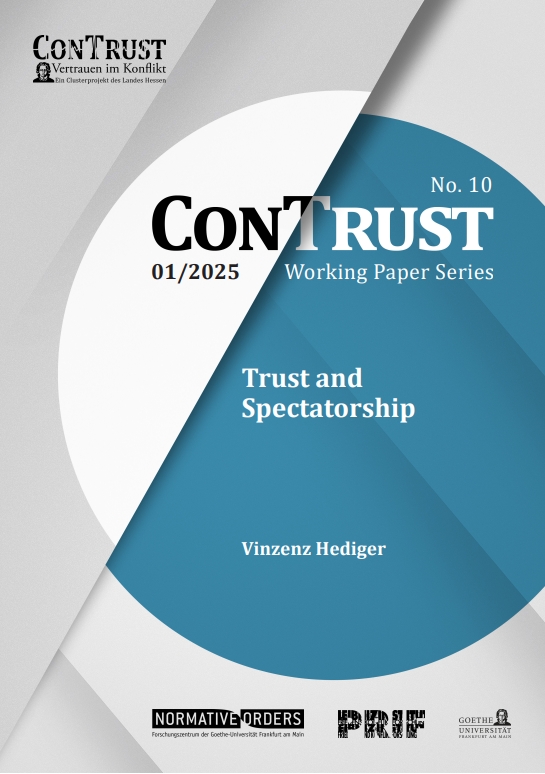Trust and Spectatorship
Research on trust and media in communication measures the trustworthiness of legacy news media (newspapers, radio, television) in nation state settings in longitudinal studies, in which controls for demographics are usually limited to age and political preference. These studies assume that trust in news sources is a useful indicator of the viability of liberal democracy. However, in an increasingly globalized and diversified digital information space in which alternative media challenge the established division of cognitive labor of democracy the underlying assumptions of this research design are increasingly tenuous. This working paper argues that, in order to understand trust in media we need to ask not just how much trust there is, but how trust in media works, how it relates to distrust, and how trust is related to and can emerge from conflict. Building on recent advances in political theory which shift the focus from democratic participation as a matter of having a voice to the empowerment of the people’s gaze, the paper focuses on the question of spectatorship and proposes to read a documentary, Ra’anan Alexandrowicz’ 2019 film “The Viewing Booth”, as an experimental system and “theoretical object” which provides insights for a theory of trust and spectatorship.


